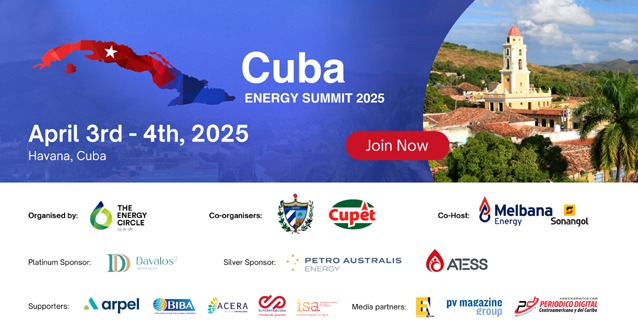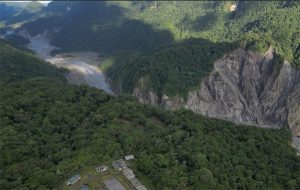
Salvadoran security forces have committed widespread human rights violations since the adoption of a state of emergency in late March 2022, Human Rights Watch and Cristosal said in a joint report released today.
More than 58,000 people, including more than 1,600 children, have been arrested since President Nayib Bukele’s government started a heavy-handed crackdown on gangs, in response to a surge of violence.
The 89-page report, “‘We Can Arrest Anyone We Want’: Widespread Human Rights Violations Under El Salvador’s ‘State of Emergency’”, details arbitrary detention, torture and other forms of ill-treatment against detainees, enforced disappearances, deaths in custody, and abuse-ridden prosecutions.
“It’s the perfect recipe for abuses and violations of human rights,” Human Rights Watch senior researcher Juan Pappier told the New York Times.
Despite the abuses, Bukele’s policy appears to have reduced homicides sharply, and certain neighborhoods are enjoying a relative calm after overt gang control.
“The emerging picture underscores a fundamental tension,” according to the New York Times. “In a country traumatized by chronic gang warfare, the crackdown has brought a respite from the violence, outweighing fears of democratic backsliding and giving an increasingly autocratic leader leverage to carry out his policies.”
Bukele remains popular, suggesting citizens welcome security even at the expense of civil rights. But they have gotten a Faustian bargain, reports El País, instead of gang terrorism, now “they fear the police and the army, who have besieged the community and many others like it across the country.”
And “while the police and armed forces are not extorting shopkeepers, the crackdown gives them the power to arrest anyone they want,” reports InSight Crime.
The escalation of the gang crackdown last weekend, with a house-by-house search for alleged gang members in Soyapango (see Monday’s briefs) “has raised severe questions as to whether gang members are really still being rooted out and what President Nayib Bukele’s true endgame might be,” reports InSight Crime.
Mano dura policies have had poor long-term results against violence, notes Pappier. While previous governments in El Salvador have all tried to repress and negotiate with the powerful street gangs, Bukele’s administration has a key difference, notes El País — “control of the entire justice system is concentrated in one person: the president.”

More Public Security
- A rise in gang violence in countries across the region has prompted some governments to adopt similar harsh responses, notes the New York Times, referencing Honduras and Jamaica.
- Honduras suspended constitutional rights in two cities, on Monday, to help fight street gangs in Tegucigalpa and San Pedro Sula. The measures affect rights of association, free movement, searches and arrests. The decree by President Xiomara Castro’s government gave as justification the threat to life and property posed by the gangs in both cities, reports the Associated Press. (See Monday’s briefs.)
- However, experts doubt that Castro’s government will take measures to the same extreme as its Salvadoran counterpart, reports the Guardian.
- While Castro was responding to brazen gang extortion schemes devastating Honduran businesses and workers, the popularity of Bukele’s campaign to seize power from gangs could be another motivating factor, according to a recent InSight Crime analysis.
- Jamaica’s government reimposed states of public emergency (SOEs) in several parishes, yesterday, just ten days after senators rejected a petition to extend a previous SOEs declared in November. Police said that in the areas where states of emergency were declared, 52 murders occurred in the two weeks before the imposition, 14 during the two weeks of the SOEs and 20 in the week after the SOEs were lifted. (Jamaica Gleaner, see last week’s Just Caribbean Updates.)
Haiti
- The Miami Herald published a comprehensive account of the sprawling plot to oust the late Haitian president Jovenel Moïse, that ended in his assassination last year. It “involved a cast of shadowy characters connected in some way to Christian Emmanuel Sanon,” a “Haitian-American preacher and physician who split his time between Florida and his homeland” who sought to oust Moïse and instal himself as president.
- “Haiti’s history is drenched in blood,” writes Jacqueline Charles in the Miami Herald’s “Made in Miami” special report on Haiti. “As the United States considers another intervention force, Haitians wonder what will come next. Will Haiti repeat the past, or finally break free?”
Argentina
- Argentine Vice President Cristina Fernández de Kirchner was was found guilty on Tuesday and sentenced to six years in prison and banned from holding public office for a fraud scheme involving public works in the Santa Cruz province, reports the New York Times. (See yesterday’s post.)
- She was acquitted of charges that she headed an illicit organization that engineered bribes and overpricing tied to roadwork projects in Patagonia during her presidency, from 2007 to 2015. (Washington Post)
- Fernández de Kirchner, a major — though divisive — national figure, can appeal the sentence, and will not face jail time or disqualification from public office in the meantime. (La Nación)
- The ruling will further polarize the country’s political scene ahead of next year’s presidential elections. Cristina has about 30 percent public support, and is a potential candidate. But yesterday, in an angry speech following the verdict, she vowed not to run, and eschew any legal immunity afforded by public office. (Financial Times)
Venezuela
- Illegal gold miners are stripping the top of Cerro Yapacana, a sacred mountain in a protected national park in Venezuela. And Maduro government officials are allegedly taking a cut in exchange for turning a blind eye, reports the Washington Post.
- “The discovery of three mass graves in Venezuela’s eastern state of Bolívar points to how sinister the increase in disappearances in the country’s illegal mining epicenter has become,” according to InSight Crime.
Chile
- Three months after Chilean voters rejected a proposed magna carta drafted by an elected Constitutional Convention, the country’s politicians are muddling towards an agreement for a new Constitutional Convention. President Gabriel Boric has urged the country’s political parties to reach an accord by the end of the week, though it’s unclear if they will do so — see today’s Chile Constitutional Updates.
Regional Relations
- The Eighth Caricom-Cuba Summit kicked off yesterday in Bridgetown, commemorating the fiftieth anniversary of relations between the Caribbean Community and Cuba. In his opening speech, Cuban President Miguel Díaz-Canel emphasized the harmonious coexistence and mutual enrichment of Caricom countries and Cuba, on health issues. (See today’s Just Caribbean Updates.)
Jordana Timerman / Latin America Daily Briefing
http://latinamericadailybriefing.blogspot












